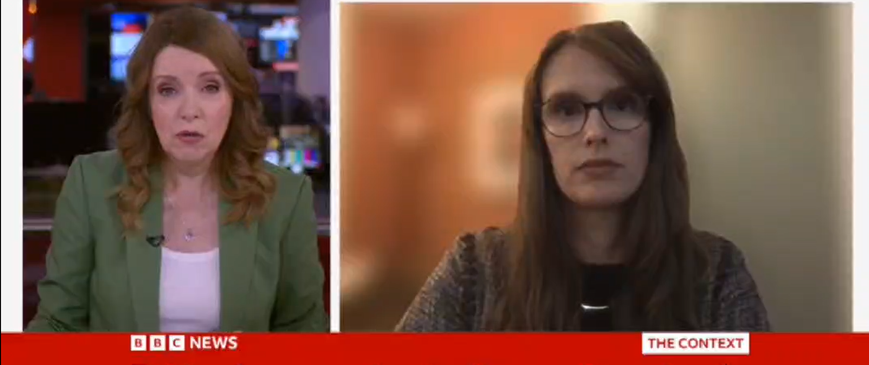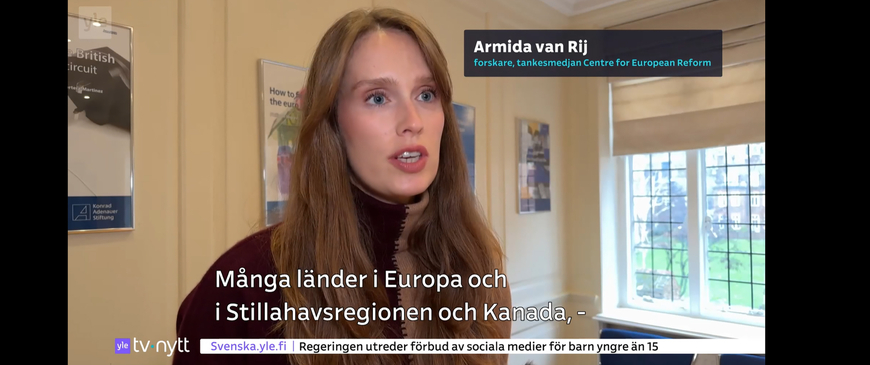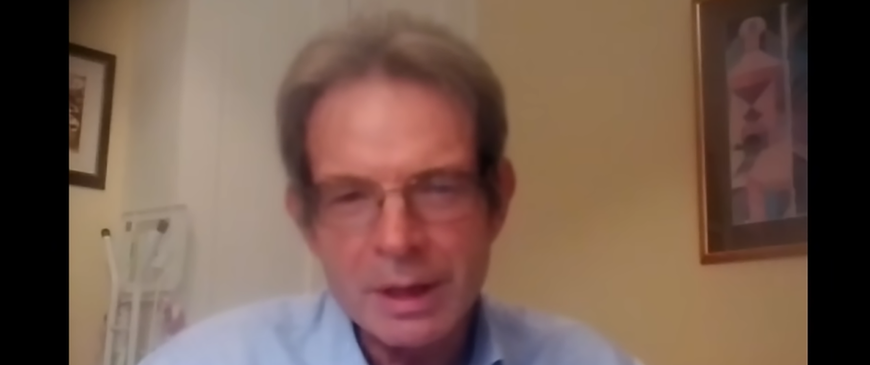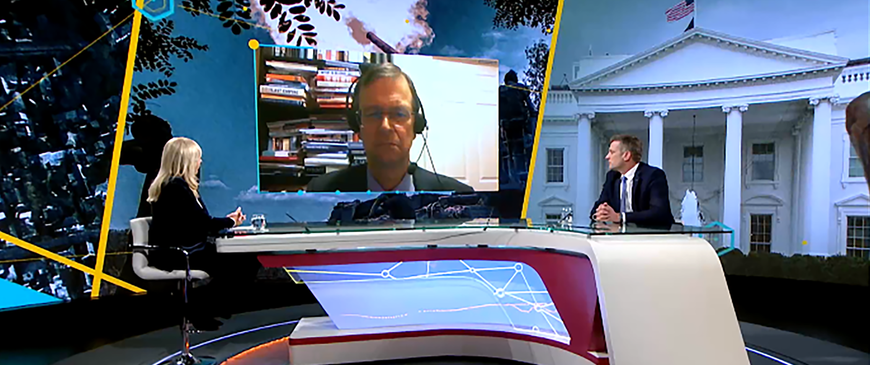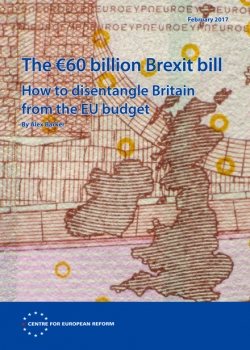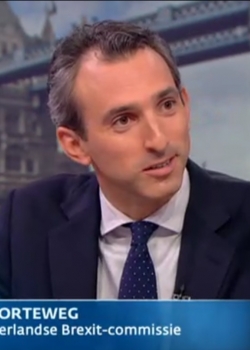Press
EU, French militaries prepare to go it alone after Brexit, US warnings
09 April 2017
France 24
“After the British vote to leave the Franco-German couple is the obvious pair to provide leadership for EU defence,” writes research fellow Sophia Besch of the Centre for European Reform. “France will be the only country left in the EU that can credibly project force abroad, and not many initiatives can succeed in Brussels without Germany’s support.”
The emerging Trump doctrine: Don't follow doctrine
08 April 2017
New York Times
“We have learned that Trump is not so isolationist as many Europeans feared he would be — he appears to care about victims of a gas attack in Syria,” said Charles Grant, director of the Centre for European Reform in London. “We have learned that he understands that US influence had suffered from the perception — which grew under Obama — that it was a power weakened by its reluctance to use force.”...
Merkel allies say Berlin shares Irish Brexit concerns ‘100%’
06 April 2017
The Irish Times
“I’m not sure what that means in practice,” said Christian Odendahl, chief economist and Berlin representative of the Centre for European Reform. “A German government will always be reluctant to get involved in others’ internal politics, [and] that goes for Northern Ireland as well as Scotland.”
The spat over Gibraltar will be followed by other bilateral rows
06 April 2017
The Economist
Charles Grant of the Centre for European Reform, a think-tank, notes that all three leading candidates in the French presidential election are promising to withdraw from this treaty, which is blamed in France for the migrant camps that have sprouted around Calais.
Theresa May begins to dismantle Brexit roadblocks
05 April 2017
Financial Times
Charles Grant, director of the Centre for European Reform, predicted that Mrs May might next concede a role for European judges in a transition period, saying it could be “the next redoubt of Eurosceptic ideology to fall”.
Hardliners stay ‘Zen’ over Theresa May’s softer Brexit mantras
05 April 2017
Financial Times
Charles Grant, director of the Centre for European Reform, noted that so far the Eurosceptic press was still highly supportive of Mrs May, encouraged by her resolute language on Brexit.
Wojny o Gibraltar nie będzie
04 April 2017
Rzeczpospolita
– Wielka Brytania wychodząc z UE musi się liczyć z tym, że państwa członkowskie będą dbały o interesy tych, którzy zostają – mówi „Rzeczpospolitej" Agata Gostyńska-Jakubowska, ekspertka londyńskiego Centre for European Reform...
...– To granie na emocjach Brytyjczyków i odwracanie uwagi od potencjalnie poważnych konsekwencji gospodarczych Brexitu – uważa Gostyńska-Jakubowska.
...– To granie na emocjach Brytyjczyków i odwracanie uwagi od potencjalnie poważnych konsekwencji gospodarczych Brexitu – uważa Gostyńska-Jakubowska.
Polskie Radio: Parlament Europejski chce mieć wpływ na negocjacje
02 April 2017
Agata Gostyńska-Jakubowska talks to Polskie Radio about the position of the European Parliament on Brexit.
David Davis, Britain’s Brexit street fighter
31 March 2017
Financial Times
Charles Grant, director of the Centre for European Reform, says this was the week when it became clear that Mrs May was determined to reach a deal with the EU and was ready to compromise. Securing that goal could depend much on the relationship between Mr Davis and “Michel”, who at the age of 66 is also on the comeback trail.
“Like Barnier, Davis wants a deal,” Mr Grant says. “He’s building a relationship with Barnier and that’s to his credit. For both of them, it is one last hurrah.”
“Like Barnier, Davis wants a deal,” Mr Grant says. “He’s building a relationship with Barnier and that’s to his credit. For both of them, it is one last hurrah.”
Security is risky card for Britain in Brexit talks, analysts say
31 March 2017
EurActiv
Charles Grant, director of the Centre for European Reform, said that in the tough talks ahead with the EU, “Britain’s strongest card is its contribution to European security.”
CER podcast: Agata Gostyńska-Jakubowska on the triggering of Article 50
30 March 2017
Agata Gostyńska-Jakubowska talks to Sophia Besch about the triggering of Article 50, the tone and substance of the letter, how it was received in Brussels, and how we can expect negotiations to unfold.
BBC Newsnight: Brexit and Article 50 - The view from Germany
30 March 2017
What do people in Germany think about the triggering of Article 50 - and the UK's decision to leave the EU? Diplomatic editor Mark Urban interviews Christian Odendahl (02:38).
May hints at using security as Brexit bargain chip
30 March 2017
EU Observer
"Any indication that the UK would use security as a bargaining chip would irritate EU partners," Agata Gostynska-Jakubowska, a research fellow at the London-based think tank, the Centre for European Reform, told EUobserver...
...Gostynska-Jakubowska told EUobserver she was struck that May kept to her agenda of concluding the divorce settlement and the future agreement in two years.
She said that the plan was "unrealistic" and that May has set "the bar really really high".
...Gostynska-Jakubowska told EUobserver she was struck that May kept to her agenda of concluding the divorce settlement and the future agreement in two years.
She said that the plan was "unrealistic" and that May has set "the bar really really high".
Brexit starts - and it’s going to be a rough road out of the EU
30 March 2017
Radio France International
“The British want to get straight into the nitty-gritty of citizens’ rights and the future relationship between the two,” says Simon Tilford, deputy director of the London-based Centre for European Reform.
“Obviously they understand they need to negotiate the divorce settlement alongside that but they want to be doing it simultaneously.
“Obviously they understand they need to negotiate the divorce settlement alongside that but they want to be doing it simultaneously.
When will Britain finally leave the EU now that Article 50 has been triggered?
29 March 2017
The Express
John Springford, director of research at the Centre for European Reform (CER), said: “If no deal is struck in two years, the member-state departs — unless all 28 countries agree to extend the talks.”
Theresa May has said that “no deal is better than a bad deal”and the UK could walk away from talks. But Mr Springford said: “This is not true...
...“Leaving the EU with no deal would mean tariffs on trade; legal chaos, with every British company selling to the EU unsure if they are doing so legally; and Britain’s alliances with other European countries in ruins.
Theresa May has said that “no deal is better than a bad deal”and the UK could walk away from talks. But Mr Springford said: “This is not true...
...“Leaving the EU with no deal would mean tariffs on trade; legal chaos, with every British company selling to the EU unsure if they are doing so legally; and Britain’s alliances with other European countries in ruins.
Tagesschau: Was bedeutet der Austritt für Großbritannien und die EU?
29 March 2017
Tagesschau looks at the predicted exit bill for Britain leaving the EU.
Nieuwsuur: Article 50
29 March 2017
Rem Korteweg talks to Nieuwsuur about the triggering of Article 50 and the forthcoming negotiations (from 20.51).
TOK FM: Wielka Brytania dziś oficjalnie rozpoczyna procedurę wyjścia z UE
29 March 2017
Agata Gostyńska-Jakubowska talks to TOK FM about the Article 50 notification letter.
Le Brexit, c'est parti!
29 March 2017
Le Matin
Camino Mortera-Martinez, chercheuse au centre de réflexion londonien Centre for European Reform, juge également "très improbable" que les discussions soient bouclées en deux ans.
Theresa May refuse de garantir les droits des quelques trois millions de citoyens européens qui vivent au Royaume-Uni alors que son principal objectif est de réduire l'immigration en provenance de l'UE.
Theresa May refuse de garantir les droits des quelques trois millions de citoyens européens qui vivent au Royaume-Uni alors que son principal objectif est de réduire l'immigration en provenance de l'UE.
I dag skrivs historia - Theresa May trycker på brexit-knappen
29 March 2017
Svenska YLE
Forskaren Agata Gostynska-Jakubowska vid tankesmedjan Centre of European Reform i London tror att May nu kommer att ha en mer försonlig ton.
- Det ton hon använder i sitt brev och i sitt tal är av enorm betydelse för att förhandlingarna ska komma på rätt spår från dag ett. Om hon vill få en bra början kan hon inte komma tuffa krav utan måste vara både konstruktiv och flexibel...
- Det ton hon använder i sitt brev och i sitt tal är av enorm betydelse för att förhandlingarna ska komma på rätt spår från dag ett. Om hon vill få en bra början kan hon inte komma tuffa krav utan måste vara både konstruktiv och flexibel...

